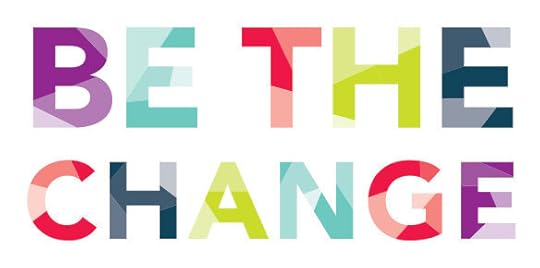It’s Always the Little Things: The Power of Positive Affirmation
When was the last time you felt appreciated?
When was the last time you expressed appreciation?

Increasingly, I find myself a witness to mass exodus (either physically, mentally or both) from organizations, relationships, etc., and seemingly the common driving force of the exodus is the simplest to remedy—a lack of appreciation and remuneration for someone’s time, commitment, and contribution.
Whether you serve on the PTO, volunteer with a charity, clock in on a 9-5, or are a wife, mother, father, or husband; there is a good chance that you’ve felt underappreciated and possibly even mistreated or undervalued.
We often hear that everyone is replaceable and while that is mostly true, the cost of replacement is habitually and grossly overlooked.
In the workplace, it takes time to fully train and immerse someone into the intricacies of the job and into the scope of specific and historical professional knowledge confined to the organization. Additionally, it takes time for any individual new to an organization to develop relationships with internal stakeholders that are vital to the efficiency needed to drive forward projects and profits. A revolving door of talent is a constant one-step forward, two-step back approach to business, and the end-result is always detrimental to the progress, future retention, and invariably the ultimate success of a company.
The same detrimental effect is relevant in volunteer organizations; perhaps to an even greater extent given the unfavorable challenge of recruiting replacement volunteers for unpaid positions.
Friendships, marriages and parent-child relationships hold the highest stakes. Notably, the cost of divorce is monetarily expensive, but moreover is the profound emotional cost of losing those from your life that you have loved and cherished.
So how do we become agents of change in the grinding cogwheel of a society that is motivated by self? How do we rewrite the script? How can we positively change the environment in which we live and work, and how do we shape our relationships with those closest to us?
In the business world, those with power and influence are seated with the most privilege to enact quick and immediate change that will reverberate and multiple. Leaders must be compelled to take a hard look within their own leadership, organizations, and spheres of influence to evaluate how to better embrace the humanity of business. Much too often, bureaucracy (and a lack of empathy) stands as a barrier to extending genuine appreciation—appreciation that is alarmingly and devastatingly dismissed as a vital factor in meeting and exceeding the goals of an organization. Simple monetarily-free gestures of appreciation for a job well done (and for the actuality of experience and scope of work) have been noted to change the narrative and retention factor 180 degrees.
But what if we aren’t seated executives or human resource management?
How can we enact change?
And, what about outside of the business world altogether? Do we hold positions of power in our own spheres of influence?
The answer is yes! And we must become change agents!

Take a moment to think of all those that have influenced your life in the last week. Now take a moment and think of how many times you expressed an appreciation, sent a thank you, or used your influence to ensure this person was remunerated in some way for their contribution.
How does your level of expressed appreciation rate against their level of contribution?
Now, dig a little deeper and ask yourself, if roles were reversed, would you feel appreciated by the gestures (or lack thereof) of appreciation?
Would you feel fulfilled? Appreciated?
Or would you feel used and resentful—and maybe looking for an exit?
With the raw and honest emotions tapped of our own shortcomings, let’s take a collective moment to now think of three ways in which we can express appreciation in our sphere of influence within the next week. Or take a moment and think of three people or groups in which you feel grateful to have in your life that you may often take for granted. #agentofchange
Be the change you want to see.

Click here for my list of top three.



